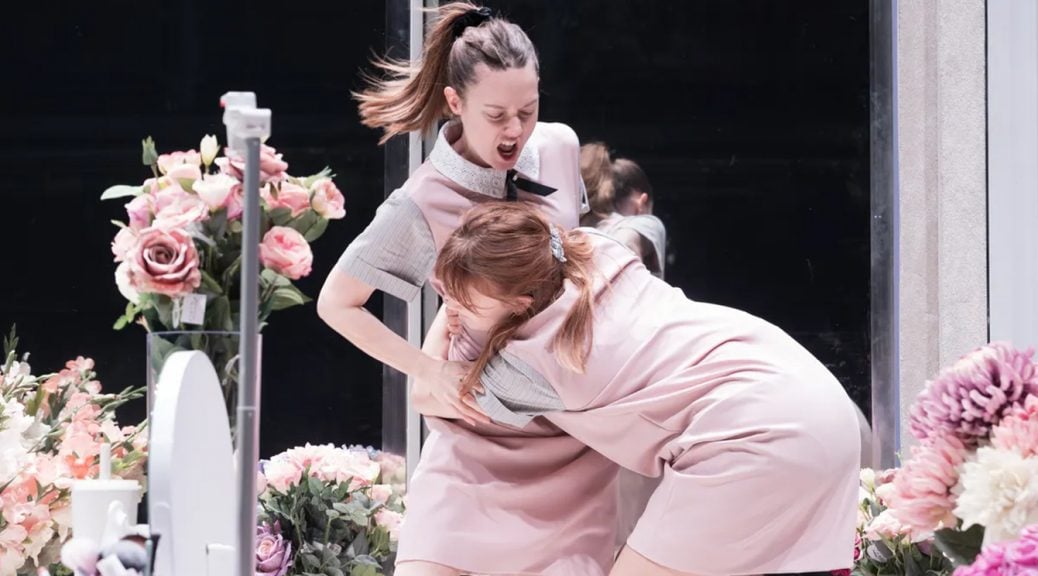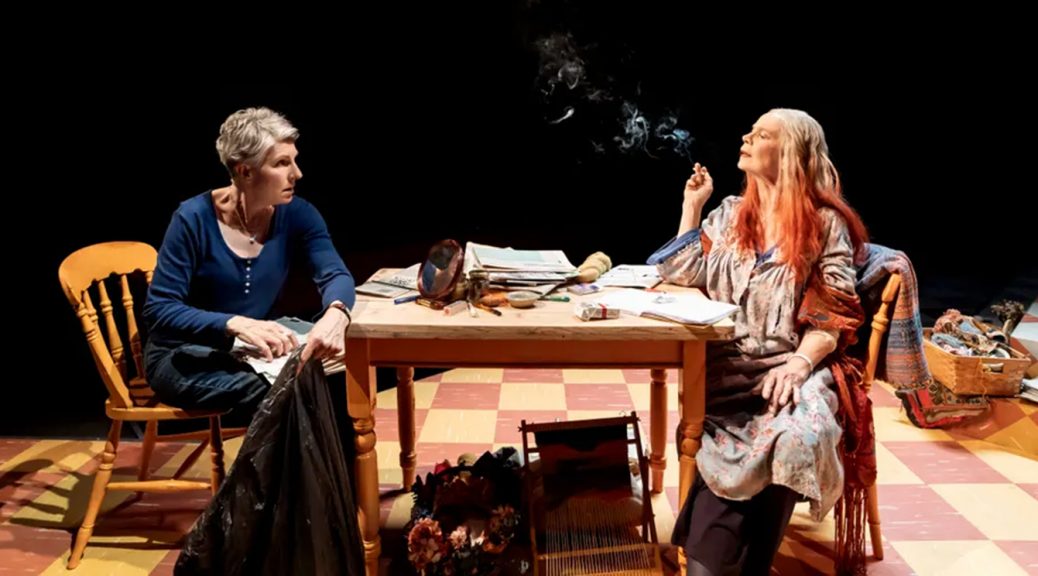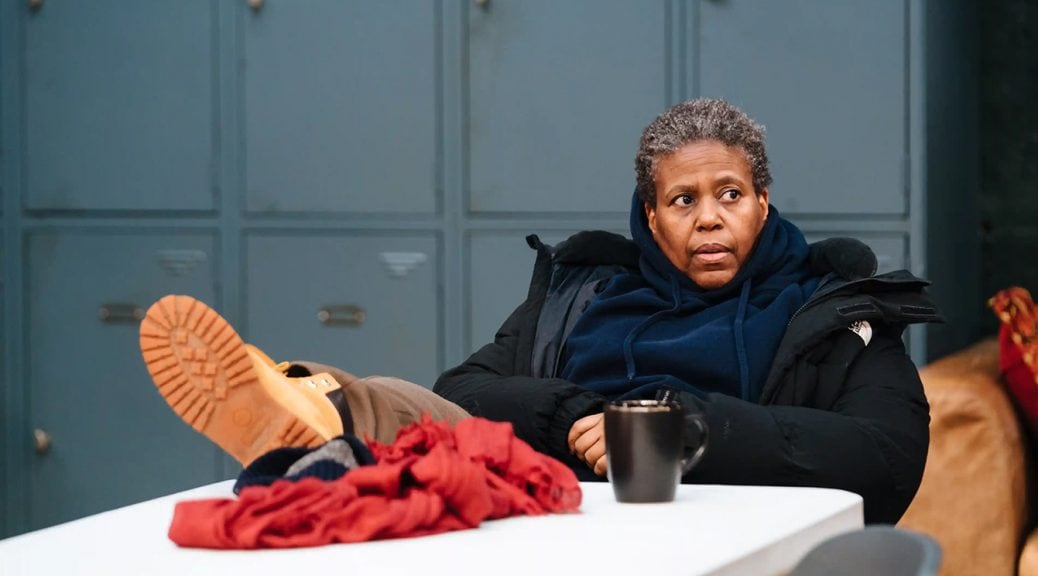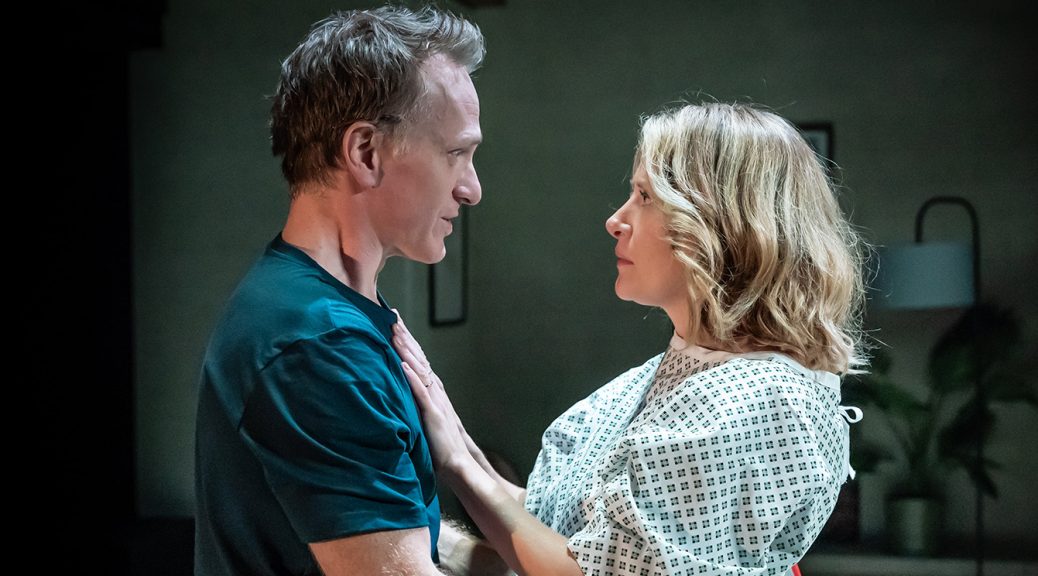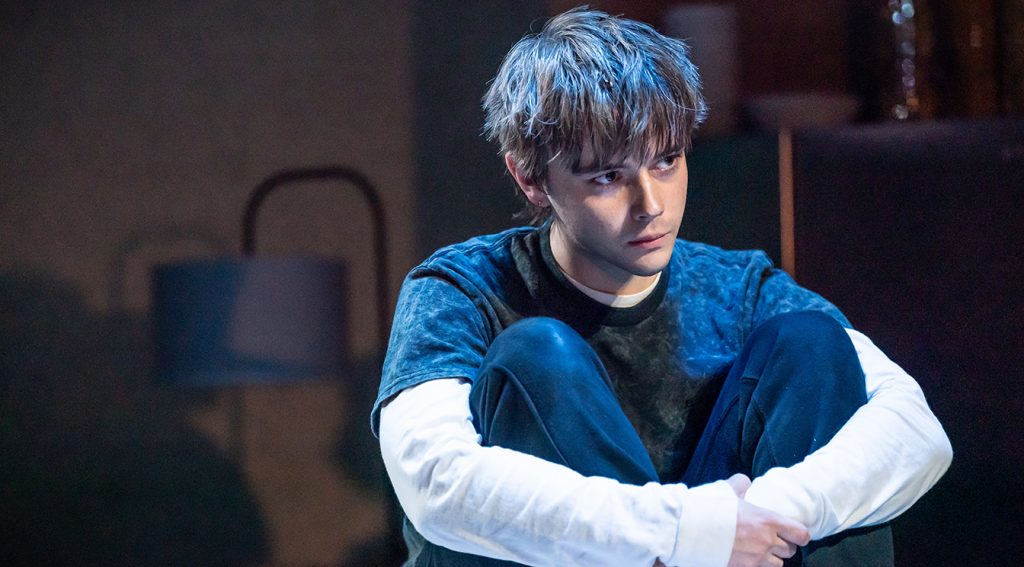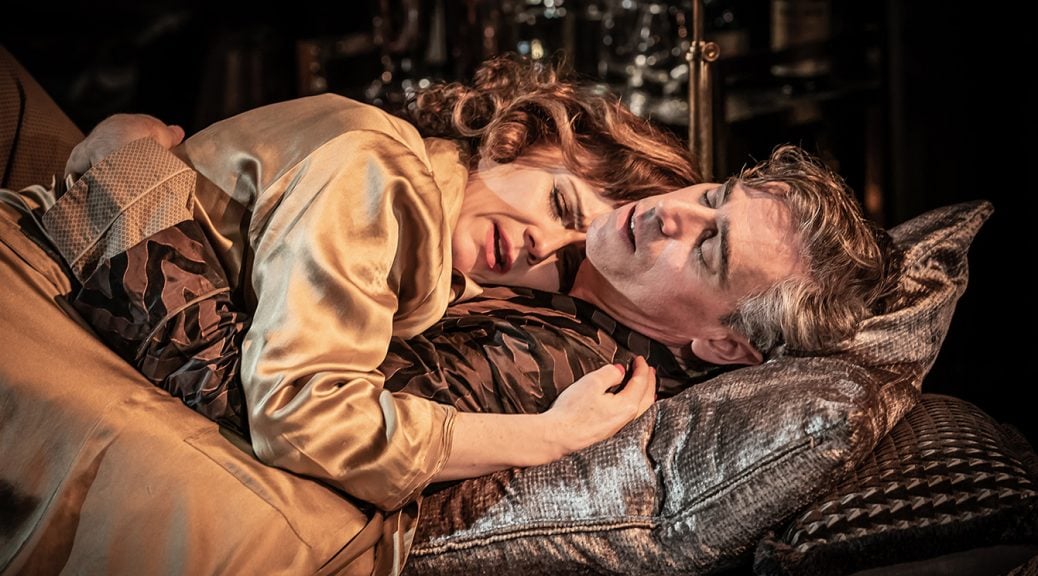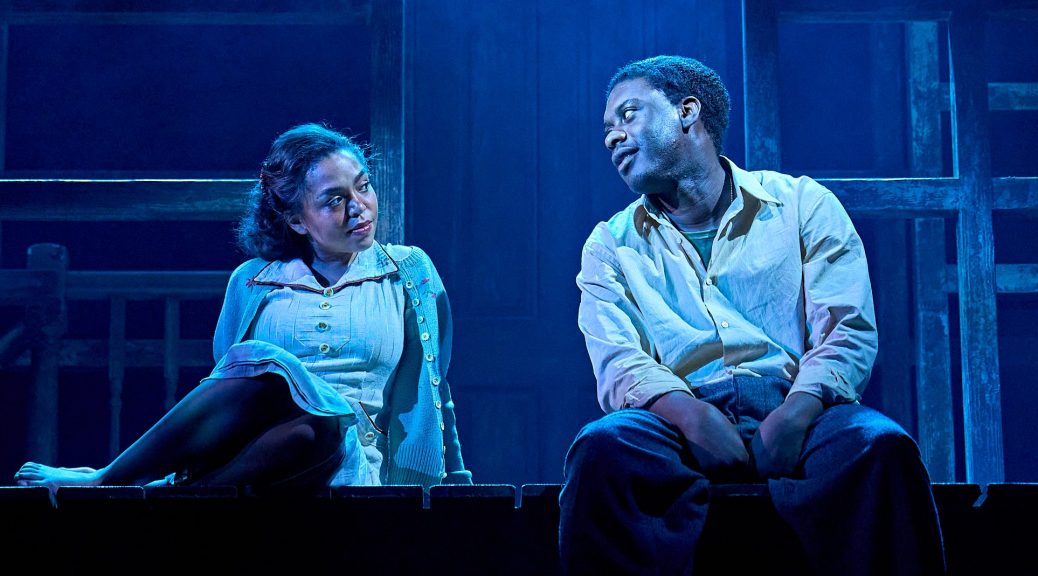As any of the characters in his new production might say, director Kip Williams is having a moment… and I’m here for it. Following a thrilling go at Oscar Wilde (and aren’t we all excited about Dracula next year?), this is his new version of Jean Genet’s 1947 play. There are problems – maybe concessions would be a fairer description – but The Maids is stylish, intense and intelligent.
That moment Williams is having is very now. Achingly so. The play is frequently changed (Jamie Lloyd’s version also “updated” the action), but here the Madame from Genet’s play could have walked in off the streets outside the venue. She is transformed into a social media fashionista influencer. Her titular staff are still poor sisters and they still want her life, but it’s a life online that they crave. So, a lot of Genet’s interest in power, particularly class, takes a different direction and is, perhaps, even lost. The religious overtones in the “rituals” the maids perform struggle for potency.
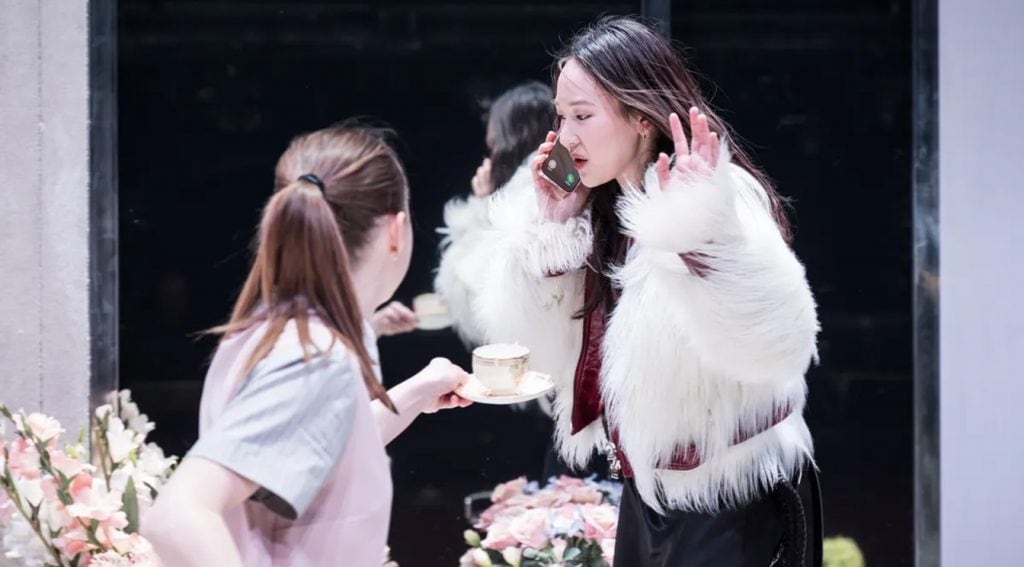
Instead, Williams goes for satire. And, of course, he has plenty to aim at with his new Madame and her followers. This is a strong performance from Yerin Ha as a spoilt rich kid who is breathtakingly solipsistic and easy to hate. It is to Ha’s credit that we sense the pressure her character is under (even if we think it is silly). There’s a similar doubt about the sisters. How serious or dangerous are they? Their bond to Madame is hard to explain and a plot to murder her (Genet’s initial inspiration) almost disappears.
Williams focuses his efforts on the language that Phia Saban and Lydia Wilson, who take the titular roles, handle marvellously. Mixing Genet’s flowery, morbid, somewhat suffocating vocabulary with a lot of swearing and contemporary slang is a bravura achievement. The script creates a vivid alternate reality that’s far more intoxicating than anything online. It is here where we see how crazed the sisters are, trapped in their imaginations as much as their employment.
This is a script I really wanted to read. And it is frequently funny. The humour throughout is great (Saban is particularly strong) and, if tension is lacking, despite excellent music from DJ Walde, it is still compulsive viewing. Williams’ direction is sure. Despite the one-room setting, the play is never static. There’s a lot of looking at phones and filters, but projecting these on to the mirrored doors of Madame’s wardrobe is a brilliant move from set designer Rosanna Vize. Darker moments are lost, and it seems fair to question this decision. But it is surely a knowing sacrifice in a play that is executed superbly.
Until 29 November 2025
Photos by Marc Brenner

